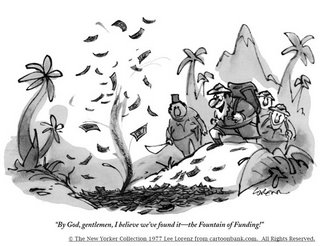"Ignorance always accompanies tragedy. "
Muslims, after decades-long studying on the principles of Western Democracy, are using these against us. Baffled Westerners are at a loss as to how to effectively counter this trend. If we are smart, we can use the same strategies to the turn the tables on them: use islamic history and semantics to own ends.
Things have not been going well in our "War on Terror" which then became known in some circles as the War Against Islamic Jihad. According to J.R. Dunn at The American Thinker, a more precise denomination, referring to what could be common ground in Muslim history, could rally the Umma, the universal brotherhood of Muslims, to our cause. The West has made progress because, out of our ignorance of Islam and Islamic history, the Ummah can't understand us as our cause has no context nor common vocabulary to which they can relate. They need our help, but first we must educate ourselves. Beyond that, how can we help them, and in turn, allow them to help us?
The Umma Needs Our Help in Modernizing
The first is that they simply don’t have the resources. The Muslim intelligentsia, which is the sole reservoir of opinion leadership that can be placed in opposition to dictatorial governments and throwback preachers, is extremely small – too small even to refer to as a class. Many Muslim intellectuals are living in authoritarian states or worse, subject to harassment, arrest, and assassination by their governments or by terror groups themselves. (As nearly occurred to Naguib Mahfouz, Egypt’s master novelist and Nobel laureate, whose acceptance of the prize so infuriated a local neanderthal that Mahfouz – nearing eighty at the time – was stabbed in the back while walking the streets of his own neighborhood.) Many of these intellectuals are sympathetic to the West (they after all share many of our ideals), but we can’t expect a few thousand out of a polity of one billion to take up that kind of a burden.
A second reason is that the Islamic media is, in almost all cases, controlled by government and acting as mouthpieces for the established order. (Al-Jazeera is only a partial exception.) No open debate is possible under these circumstances; no information contrary to the status quo will make it past the censors. Alternatives are in the process of creation, as we have seen with the establishment of blogging in liberated Iraq. But the infowave has only recently struck the Islamic world, and the establishment of an alternative Net culture will require time.
And third: to be frank, many of the Islamic umma remain in a medieval or even tribal mindset. Except for political and business elites, a majority are separated from the soil by one generation at best. They are still living with ancient concepts, attitudes, and beliefs. They are uncertain about modernity, and to some extent fearful of it. They are bewildered by things that we take as a matter of course. Often enough, that bewilderment is expressed as hostility.
None of this means that they are inferior or incapable. It means they are inexperienced, and require guidance from those who have gone before them. That guidance must come from us. By “us”, I mean, of course, the United States and other members of the Anglosphere; nobody else cares, and in point of fact, it’s unlikely that the Muslim people would pay much attention to them if they did.
A final complication is mutual incomprehension. It would be surprising if this weren’t the case. Islam and the West are, after all, different civilizations, with differing histories, worldviews, and values. Separate paths result in separate products.
"What is required of us is an effort to pinpoint ideas and concepts within Muslim culture and history that can act as points of commonality between the West and Islam, anchor points for bridges between the two civilizations..."
Dunn suggests that we focus on the
kharijites who were the first sect to bring schism into the new Islamic community.
They began as followers of Ali ibn Abi Talib, grandson of the Prophet, who became the fourth caliph in 657 after the assassination of Caliph Uthman.
Ali was immediately challenged by the governor of Syria, who refused to pledge his fealty. (Early Islamic history is a parade of one succession crisis after another.) By all accounts one of the most reasonable men of his time, Ali agreed to subject the matter to arbitration.
This set the Kharijites, who consisted of members of three tribes, ablaze. Ali, in their opinion, had been selected by no less than Allah, and in putting the divine choice up to human arbitration was committing a gross and unforgivable sin. Pulling up stakes, the tribes headed toward Kufa, south of Baghdad, in the process earning themselves their name.
Ali pursued them, first to remonstrate, and then, when that failed, to bring them to battle. The Kharijites were defeated, with many killed. Some of the remnant returned to Ali, but the hard core retreated across the Tigris. Ali let them go, assuming that they’d been taught their lesson and would be no further problem.
He was mistaken. In 661 he was assassinated, by a Kharijite. The Kharijites possessed a straightforward and easily-grasped theology: Anyone who wasnot a Kharijite was an unbeliever, and all unbelievers should be killed.
The Kharijites introduced a number of concepts and practices into Islam: the politicization of religion, the conviction that the earliest days of the caliphate marked a state of perfection against which all human society must be judged, the practice – called takfir—of anathemizing individuals and groups as heretics, the use of extreme methods, including the slaughter of entire families, against opponents – methods that we today would describe as “terrorism.”
For the next two centuries the Kharijites attempted to ensure the spread of this simple, invigorating faith by killing everyone who disagreed with them. They set up a series of independent theocratic states throughout the region, using them as operating bases to target the Ommayad holdings. They encouraged revolt, took over entire provinces and massacred those who refused conversion. They practiced a form of guerilla warfare, retreating onto the Iranian plateau when things went poorly only to burst out once again when opportunity beckoned. Their activities weakened the Ommayad caliphate so grievously as to guarantee the success of the Abbassid revolt. The Abbassids themselves required maximum effort to finally wipe out the Kharijites in the 9th century.
Although the Kharijites were destroyed, their influence lived on...
I would say that it lives on in fundamentalist movements and notions of superiority and intolerance against apostates and non-Muslims. It became the
dark side of Islam.There are some existing groups that are directly
influenced by Kharijite beliefs: Takfir wa-l Hijra in Egypt, the Armed Islamic Group (GIA) in Algeria, and the Palestinian Islamic Jihad, as well as several North African Bedouin tribes.
Some contend that Kharijism is a component of all Islamic terrorism, "pointing out that Said Qutb, the inspiration of Osama bin-Laden and others, was well-read in Kharijite doctrine, [and that] The Wahhabis, with their fundamentalism, their eagarness to anathemize opponents, and their proselyte activities, [demonstrate] Kharijite tendencies."
What does this mean and how can we use it?Muslims possess their own understanding of terrorism, derived from their own history and experience and based on their own principles. The Muslim view of terror, unsurprisingly, concentrates on the effect that it has on Islam and the Muslim community. The impact on the world beyond in strictly secondary.
But the crucial point is that the Muslim’s Kharijite is the same as the Jihadi, the Jihadi the same as a Kharijite. For all practical purposes, they are identical. There is not an iota of difference between the two.
Here is our bridge.By adapting and by calling our fight the "War on Kharijism" , we will achieve several things:
1) The West can undermine Jihadi attempts to portray the War on Terror as a clash of civilizations or a campaign against Islam, definite turn off for the billion-member Ummah.
2) It would define clearly and unambigously what were are fighting against and why.
3) It would increase chances of gaining understanding and support form the Muslim Ummah.
4) It will put in historical context the large mass of proganda by the Jihadis...as the behavior not of heroic rebels or defenders of Islam, but of deadly misfits well-known to Muslim history.
5) Adapting the concept would assure Muslims that we're talking about the same thing and fighting the same battle, giving the Muslim masses an enemy they can understand.
6) It would go a long way toward explaining our own actions as simply a response against Kharijism, which has spilled over into our territory.
7) It would enable Middle Eastern governments, often pilloried for allying themselves with the U.S., to lay claim to the high ground of defending accepted Islamic practice.
8) The West would be able to develop means of prophylaxis to combat and prevent the development of these movements.
How can we achieve our goal without further alienating a fifth of the world's population?1) We must educate ourselves by learning how such movements grow and develop; their methods and tactics, their effect on the Muslim Umma as a whole, and their weakness and how they are destroyed.
2)
Use the concepts and rituals of Islam about Kharjite as a gate into Muslim thought and behavior. In other words, talk to them using language and concepts they can understand, a common-sense approach.
3) Reminding some Muslim regimes that they owe more than one
honor debt - Muslims in Bosnia, Kosovo, Kuwait, Saudi Arabia, and now Iraq, under Islamic principles should be beholden in a debt that is "sacred even when involving a
Nezerin, (that is, a Christian).
4)
The People of the Book - The Koran is clear that Jews and Christians, as People of the Book, are believers and must be respected as such, a reminder than many continue to ignore, or of which need to be reminded that feelings of "hostility and superiority" must be put aside as a religious obligation.
5) A revival of the
Mutazilite School of Islam. The Mutazilites were a rationalist movement that appeared in Islam in the wake of the Kharijites. Based on Greek philosophical sources (with much reference to Aristotle), they believed in a reasoned analysis of all aspects of religion and society. They died out early, overwhelmed by the traditionalist Ashariteschool. But the movement has experienced a revival in the past century, in response to Islam’s confrontation with modernity.
Since much of the difficulties afflicting Islam today arise from that very conflict, it would appear that a school of thought like Mutazila would be a high-value proposition. Like everyone else, Muslims will not adapt to modernity except on their own terms. Some idea of what those terms comprise could very well be found in Mutazila.
6)
Americans must overcome their traditional ignorance of other cultures which, to our detriment, has "been the hallmark of American engagements". An example is seen in the closing events of WWII in the Pacific.
Failing to grasp what "unconditional surrender" meant to the Japanese, the phrase was uttered offhand by FDR, much in the same way that President Bush used the term "crusaders" in his speech. These loaded terms have caused resentment and heightened hostility. "To Japanese thinkng, [unconditional surrender] meant subjecting the Emperor, the divine presence on this earth, to criminal prosecution and the possibility of death. They could not allow this, as they proved with their blood at places like Iwo Jima and Okinawa.
Ignorance can be no excuse as our very existence depends on smart thinking as well as on a show of force.
Read it all.














